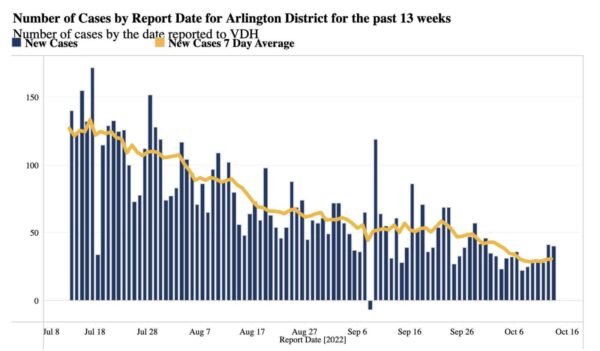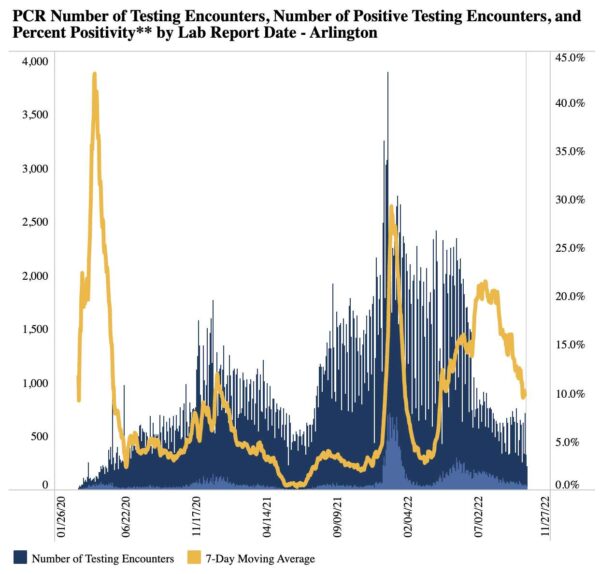
Arlington’s Covid test positivity rate dipped below 10% earlier this month, for the first time since April.
That’s according to the latest data from the Virginia Dept. of Health, which is currently reporting a seven-day moving average of about 30 cases per day in the county, down from 200 daily cases in late May.
Arlington remains roughly in the middle of the Centers for Disease Control and Prevention’s case range for a “low” Covid rate, at just over 100 cases per week per 100,000 in population. The CDC is reporting about five Covid-related hospital admissions per week per 100,000 people in the county.

The relative lull in cases comes as the U.S. healthcare system braces for a sharp rise in Covid and flu cases this winter.
From NPR earlier this morning:
The U.S. should prepare for a spike in COVID cases this winter as more people gather indoors and infections already begin to rise in Europe, White House COVID-19 Response Coordinator Ashish Jha says.
The warning echoes that of some other experts who anticipate a rise in cases in the coming months, while other modelling suggests that infections will recede in the near future.
“We are seeing this increase in Europe, and Europe tends to precede us by about four to six weeks,” Jha told NPR. “And so it stands to reason that as we get into November, December, maybe January, we are going to see an increase in infections across much of the country.”
“I’m pretty worried about what the ER will look like this winter,” Virginia Hospital Center emergency department chair Mike Silverman wrote in his latest weekly Facebook post. “It’s always busier in the winter than the summer. Our weekly volume is currently higher than our pre-pandemic volume and we’re starting to see an increase in the [number of] patients presenting with respiratory illnesses.”
Some experts are predicting a more modest Covid surge this winter, owing in part to greater natural immunity in the population in addition to the new bivalent vaccine booster shots that are intended to better target the Omicron variant.
But even if Covid does not spike to the levels of past winters, the flu and other respiratory viruses are likely to keep hospitals and other healthcare providers busy.
“If you go around the nation and ask hospitals how busy they are, every single one of them will tell you: They’re busy,” Dr. Carlos del Rio of Atlanta’s Emory University School of Medicine told NBC News.

